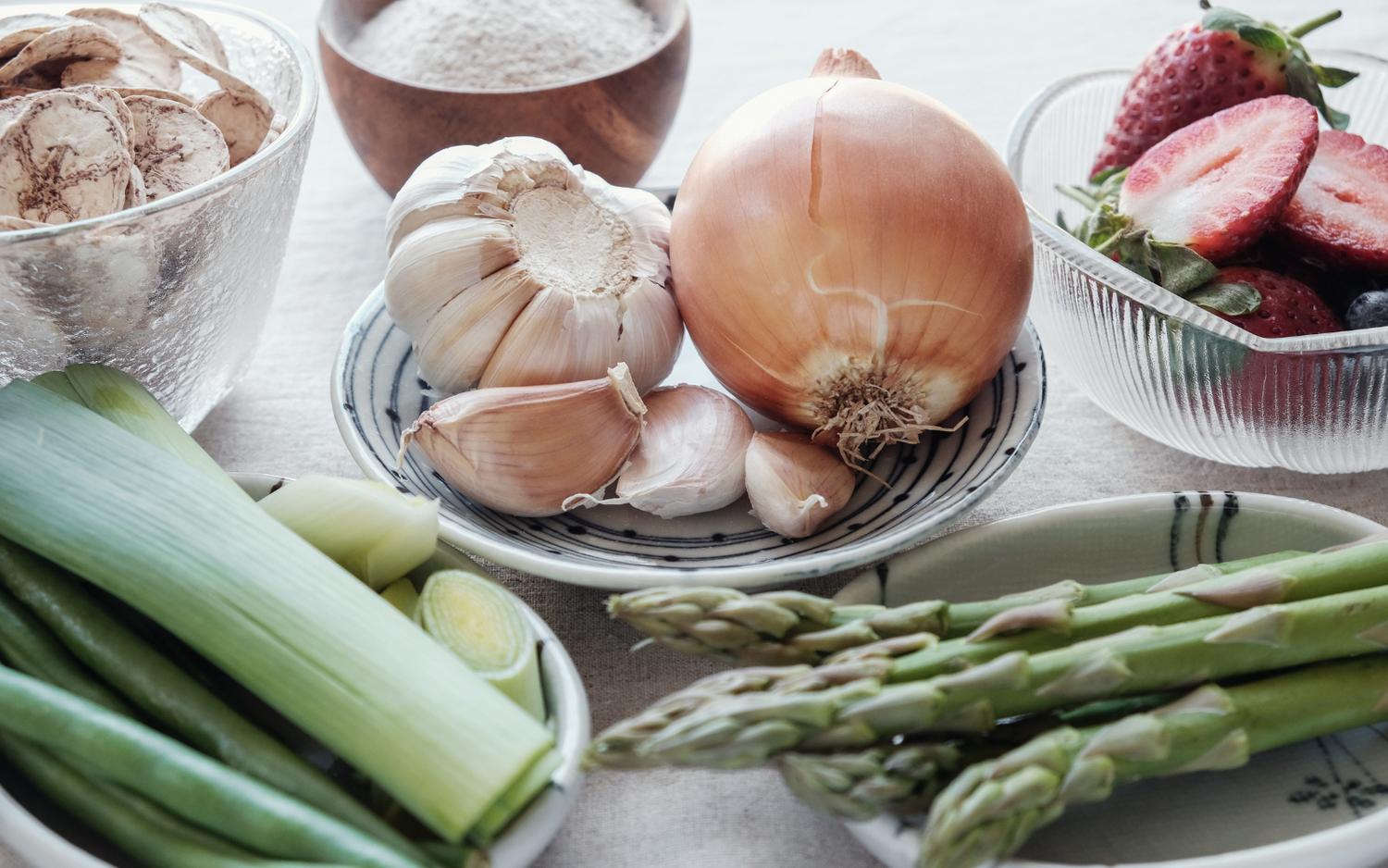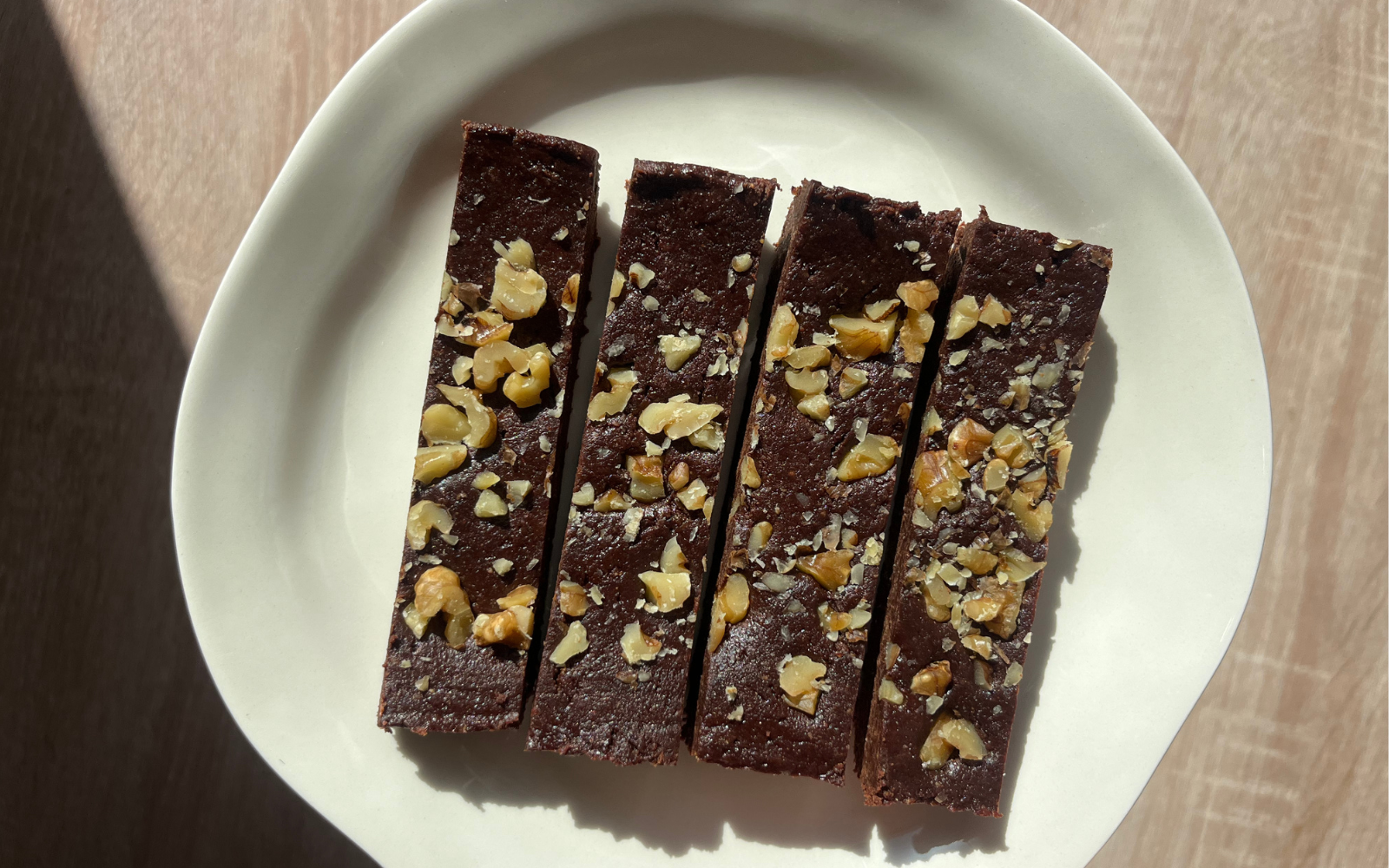An Ageing Population
Worldwide, populations are living longer. Across countries, we are experiencing growth in both population size and proportion of older individuals, with an expected 1 in 6 people to be aged 60 years or older by 2030 according to the World Health Organization [1]. With this change, the prevalence of age-related conditions such as cognitive decline are set to increase. Researchers are therefore putting a focus on early health interventions that prevent such conditions from developing, optimising health-span alongside this globally growing lifespan. An area that has received particular interest in hitting this target is prebiotics, demonstrating multifaceted benefits on our body's systems.
Gut Microbiome and the Gut-Brain Axis
Your gut is lined with a collection of bacteria that form a unique micro-ecosystem known as your gut 'microbiome'. These bacteria are essential for digesting food, absorbing nutrients and maintaining overall gut health. An imbalance in your microbiome can have a negative impact on not only your gastrointestinal health but may cause problems with your brain health too. There is a bidirectional communication system known as the gut-brain axis that links both physically and biochemically via millions of neurons [2] meaning your gut health has a significant impact on your brain health. As we age, the resilience of the gut microbiome diminishes, causing gut dysbiosis, and this is recognized as one of the of the root causes of aging known as the "hallmarks of aging". This makes individuals more susceptible to diseases and lifestyle alterations related to physiological function beyond just your gut. Therefore, taking initiative to boost your gut microbiome diversity is an important factor in promoting longevity. So how can you do this?
Prebiotics and the Gut Microbiome
Prebiotics are a type of natural plant fiber found in fruit and vegetables containing complex carbohydrates that can act as a food source for your gut bacteria [3]. When digested, they bypass the digestive system and enter the colon, where your microbiome can metabolize and ferment these prebiotics, breaking them down to various short chain fatty acids (depending on the prebiotic). This not only enhances the production of 'good' bacteria but can help with a number of processes including energy production, inflammation and immune response [4]. The benefits of prebiotics are multi-faceted and complex with ongoing research defining their exact mechanisms of action. At present they are known to: Regulate bowel movements, stimulate neurotransmitters connecting the gut-brain axis to regulate mood and stress, enhance immune and anti-inflammatory response and improve bone density [5].
Prebiotics for Brain Health?
Increasing evidence suggests potential cognitive benefits from prebiotic supplementation targeting the gut-brain axis, implying a promising avenue for preventing and reversing age-related cognitive decline. Pertinent to this, a recent study from Kings College London [6] has produced valuable evidence for the effects of dietary prebiotics, carbohydrate fructooligosaccharide (FOS) and inulin, on brain function in older adults.
Study: ‘Taking fiber supplements FOS or inulin may improve older adults' brain function in 12 weeks’
This research group collated evidence from prior studies, finding FOS and inulin to be cheap, accessible supplements strongly associated with a healthy gut. They therefore looked at testing these supplements in a double-blind trial on a twin population of individuals over the age of 60, with one twin given the supplement and the other receiving placebo. FOS and inulin are naturally occurring prebiotics sourced from plants, found in a range of common foods in diet. Their specific focus on inulin and FOS came from positive evidence of their influence on the gut. Prior research has indicated that inulin may alters the gut microbiome mitigating neuroinflammation [7] and enhancing recovery from traumatic brain injury [8}. Studies investigating FOS supplementation indicate reduced neuroinflammation and enhancement in memory function [9]. Further, collation of evidence suggests that this supplement could potentially attenuate the onset of Alzheimer's disease through diminishing beta-amyloid levels in the brain [10].
Outcomes:
The prebiotic intervention in this study had a number of promising effects. Firstly, it altered gut microbiota composition, specifically increasing the abundance of Bifidobacterium and actinobacteria, both of which have been linked to health benefits [11]. Interestingly, through various cognitive testing, they evidenced a significant improvement in memory and thinking tests over just 12-weeks compared to placebo. What is worth noting here is the researchers employed the Paired Associates Learning tests, known for identifying early markers of Alzheimer's disease [12]. The substantial improvement observed on this test in particular implies the potential use of these prebiotics as a preventive measure against Alzheimer’s disease onset and perhaps other Dementias. Overall, these finding bolsters understanding of the gut-brain axis link, indicating a promising target for future studies. In the context of preventative therapeutics for age-related cognitive decline this holds great promise, highlighting the value and power of prebiotic supplementation for enhancing brain health and longevity in our aging population.
Primeadine® and FOS
With the insights from this study, wouldn’t it be great to have an easy way of incorporating FOS into our daily diets? Well, did you know that the prebiotic FOS is a fundamental component of Primeadine® Original.
Primeadine® Original stands out as a wholly plant-based supplement, fortified with 1mg of spermidine. It not only includes naturally occurring polyamines like spermine and putrescine but also incorporates FOS (Fructooligosaccharide) derived from beetroot. Together, these components synergistically support the body's production of spermidine. In light of this significant study, through the supplementation of Primeadine® you not only tap into the long list of benefits of spermidine but can also leverage the advantages of FOS too. This dual-action approach underscores potential for enhanced gut and brain health. Take control of your health and longevity today.
References
[1] Ageing and health n.d. https://www.who.int/news-room/fact-sheets/detail/ageing-and-health (accessed March 28, 2024).
[2] The Gut-Brain Connection: How it Works and The Role of Nutrition n.d. https://www.healthline.com/nutrition/gut-brain-connection#TOC_TITLE_HDR_4 (accessed March 28, 2024).
[3] Gibson GR, Hutkins R, Sanders ME, Prescott SL, Reimer RA, Salminen SJ, et al. Expert consensus document: The International Scientific Association for Probiotics and Prebiotics (ISAPP) consensus statement on the definition and scope of prebiotics. Nat Rev Gastroenterol Hepatol 2017;14:491–502. https://doi.org/10.1038/NRGASTRO.2017.75.
[4] Bedu-Ferrari C, Biscarrat P, Langella P, Cherbuy C. Prebiotics and the Human Gut Microbiota: From Breakdown Mechanisms to the Impact on Metabolic Health. Nutrients 2022;14. https://doi.org/10.3390/NU14102096.
[5] Ansari F, Neshat M, Pourjafar H, Jafari SM, Samakkhah SA, Mirzakhani E. The role of probiotics and prebiotics in modulating of the gut-brain axis. Front Nutr 2023;10:1173660. https://doi.org/10.3389/FNUT.2023.1173660/BIBTEX.
[6] Ni Lochlainn M, Bowyer RCE, Moll JM, García MP, Wadge S, Baleanu AF, et al. Effect of gut microbiome modulation on muscle function and cognition: the PROMOTe randomised controlled trial. Nature Communications 2024 15:1 2024;15:1–15. https://doi.org/10.1038/s41467-024-46116-y.
[7] Hoffman JD, Yanckello LM, Chlipala G, Hammond TC, McCulloch SD, Parikh I, et al. Dietary inulin alters the gut microbiome, enhances systemic metabolism and reduces neuroinflammation in an APOE4 mouse model. PLoS One 2019;14. https://doi.org/10.1371/JOURNAL.PONE.0221828.
[8] Yanckello LM, Fanelli B, McCulloch S, Xing X, Sun M, Hammond TC, et al. Inulin Supplementation Mitigates Gut Dysbiosis and Brain Impairment Induced by Mild Traumatic Brain Injury during Chronic Phase. J Cell Immunol 2022;4:50. https://doi.org/10.33696/IMMUNOLOGY.4.132.
[9] de Paiva IHR, da Silva RS, Mendonça IP, Duarte-Silva E, Botelho de Souza JR, Peixoto CA. Fructooligosaccharide (FOS) and Galactooligosaccharide (GOS) Improve Neuroinflammation and Cognition By Up-regulating IRS/PI3K/AKT Signaling Pathway in Diet-induced Obese Mice. J Neuroimmune Pharmacol 2023;18:427–47. https://doi.org/10.1007/S11481-023-10069-8.
[10] Yen CH, Wang CH, Wu WT, Chen HL. Fructo-oligosaccharide improved brain β-amyloid, β-secretase, cognitive function, and plasma antioxidant levels in D-galactose-treated Balb/cJ mice. Nutr Neurosci 2017;20:228–37. https://doi.org/10.1080/1028415X.2015.1110952.
[11] Hidalgo-Cantabrana C, Delgado S, Ruiz L, Ruas-Madiedo P, Sánchez B, Margolles A. Bifidobacteria and Their Health-Promoting Effects. Microbiol Spectr 2017;5. https://doi.org/10.1128/MICROBIOLSPEC.BAD-0010-2016/ASSET/CA453675-BF2E-4F02-8590-0D5EE7260EB6/ASSETS/GRAPHIC/BAD-0010-2016-FIG2.GIF.
[12] O’Connell H, Coen R, Kidd N, Warsi M, Chin AV, Lawlor BA. Early detection of Alzheimer’s disease (AD) using the CANTAB paired Associates Learning Test. Int J Geriatr Psychiatry 2004;19:1207–8. https://doi.org/10.1002/GPS.1180.





Leave a comment
All comments are moderated before being published.
This site is protected by reCAPTCHA and the Google Privacy Policy and Terms of Service apply.